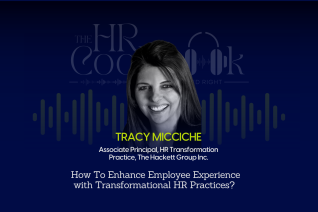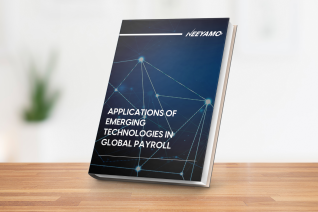Establish your presence globally with Neeyamo as we help you go beyond borders to manage your international payroll and hire new talent in Latvia.
Overview
The most common and familiar bottoms worn around the world is a pair of jeans. Seen across countries and cultures, jeans have become a staple wardrobe piece for many. What many may not know about them though is that they were invented by Jacob Davis, a Latvian. Levi Strauss and Jacob Davis, a Latvian tailor, created the first pair of Jeans in California in 1873, with Strauss contributing the denim and Davis, his immense talent.
If your organization’s expansion plans require you to hire employees in Latvia and you lack a physical entity in the country – a key requisite to hire local talent, Neeyamo – Global Payroll Solution provides assistance for onboarding and management of employees in Latvia along with professional payroll services, payroll accounting, compliance, benefits and more.
Tools And Instances
Facts And Stats
Capital
Riga
Currency
Euro (EUR)
Official Language
Latvian
Fiscal Year
1st January to 31st December
Date Format
DD/MM/YYYY
Country Calling Code
371
Time Zone
Eastern European Time Zone (UTC + 02:00)
Global Payroll
Overview
Handling payroll for a widespread workforce can pose a significant challenge for any organization, and the added complication of compliance can make things worse. If companies spend more time processing payroll, it directly impacts day-to-day operations and their overall productivity. The solution to this is multi country payroll outsourcing using global payroll companies.
Over the years, Neeyamo – global payroll service providers, has observed these complexities and strived to provide a global payroll solution through a single technology platform - Neeyamo Payroll.
Payroll Taxes
Using our Global Payroll Management System, Neeyamo handles all your payroll tax needs. Payroll tax is the percentage amount retained from an employee's salary and paid to the government to invest in the general population's welfare. These are statutory in nature and are levied from both the employer and employee. Additional statutory contributions are made by employers towards providing both short-term and long-term benefits for their employees.
Employee Taxes
The employee taxes in Latvia are computed as follows:
| National Social Insurance and Solidarity Tax (NSIC) for Employment with a company registered in Latvia/EU/EEA (split rate) | 10.50% |
| National Social Insurance and Solidarity Tax (NSIC) for Employment with a company registered in Latvia/EU/EEA (employee eligible for retirement-split rate) | 9.25% |
Range of Annual Income in General (Euro) and Income Tax Rate
| Up to €20,004 | 20% |
| More than €20,004 and up to €78,100 | 23% |
Employer Taxes
The employer taxes in Latvia are computed as follows:
| National Social Insurance and Solidarity Tax (NSIC) for Employment with a company registered in Latvia/EU/EEA (split rate) | 23.59% |
| National Social Insurance and Solidarity Tax (NSIC) for Employment with a company registered in Latvia/EU/EEA (employee eligible for retirement-split rate) | 20.77% |
Payroll Cycle
Overview
Undoubtedly, payroll is a critical process for any organization. The pay cycle in Latvia refers to the period for which an organization pays its employees, and this can vary depending on the pay frequency that the organization chooses to adopt.
Frequency
In Latvia, it is common for employees to be paid on a monthly basis, at the end of the month.
13th Month Cycle
There is no statutory requirement to provide the 13th salary.
Global Work
Overview
An Employer of Record (EOR) service provider helps you eliminate the hassle of handling complexities while onboarding a new employee in an international location. They help bridge the gap that otherwise mandates organizations to have a local registered entity and a local bank account, prior to making a job offer to an international hire.
An EOR service provider acts as a legal employer, facilitates salary payments, and manages other statutory requirements such as health insurance, payroll taxes, and employee benefits ensuring compliance with local tax laws and regulations.
This allows organizations to focus on collaborating with the employee in Latvia for operational tasks, with the knowledge that they have a cost-effective solution like Neeyamos to support their employer of record, payroll services and HR requirements, as they continue their global expansion.
Neeyamo, using its Cloud based Payroll and HR services, strives to provide its customers with a seamless employee management experience and offers employer of record as well with our Global Payroll Technology Stack.
HR Mandates and Practices
Minimum Wage
Minimum Wage in Latvia changed from EUR 620 to EUR 700 in 2024.
Overtime
Overtime is defined as work performed outside of regular working hours or on a public holiday that must be compensated with 200% of regular pay or paid time off.
Employers generally must pay overtime for work performed in excess of eight hours in a 24-hour period or 40 hours in a week. Employers must compensate employees with double pay for overtime work or work on a holiday. The maximum amount of overtime work allowed is an average of eight hours in a seven-day period, calculated over a period of up to four months. Employers and employees generally must agree upon overtime work in writing.
Data Retention Policy
Employers generally must keep tax records for three years.
Latvia's national government does not assess taxes on employment income other than those covered in the Income Taxes and Social Taxes sections of this primer.
Hiring and Onboarding Requirements
Hiring
The Constitution of the Republic of Latvia (the "Constitutional Law"), effective as of February 15, 1922, contains a general prohibition of discrimination and also provides that everyone has the right to freely choose their employment and workplace according to their abilities and qualifications.
The code introduces the principle of equal rights to work, fair, safe, and healthy working conditions, and to fair remuneration for the work. No discrimination is permitted between men and women over the terms and conditions of employment. Furthermore, the code makes it unlawful to discriminate on race, age, religion, disability, political or any other belief, national or social origin, property or family status, or other grounds in employment, promotion, and training. It is also illegal to advertise for staff on a discriminatory basis.
Onboarding
Please note that the employer prior to the signing of an employment contract is entitled to request an applicant to present
- ID document (ID card or passport) for identification purposes
- A visa or a residence permit if he/she is from a third-country national (non-EU), certifying that the foreigner has been granted the right to employment.
- Documents that certify his or her education or occupational preparedness.
Optional Document - Health Test Report
When onboarding or during employment, at no point employer may request applicant/employee personal information, which concerns:
- pregnancy
- family or marital status
- previous conviction, except for the cases where this may be of essential importance with respect to the work to be performed (like in education, work with children, police, etc)
- religious conviction or belonging to a religious denomination
- affiliation with a political party, employee trade union, or other public organization
- national or ethnic origin
Probation
Probationary periods are quite common in Latvia. They are used by employers in order to determine employee suitability for the position.
The length of the probationary period must be set out in the employment contract. The maximum term allowed by law is three months. This term does not include sickness periods or other justified absences.
Leave
Public Holiday
The mandatory paid public holidays of Latvia are:
- Jan 1: New Year
- Apr 7: Good Friday
- Apr 9: Easter Sunday
- Apr 10: Easter Monday
- May 1: Labor Day
- May 1: Constituent Assembly Convocation Day
- May 4: Independence Restoration Day
- May 14: Mother's Day
- May 23 and May 24: Midsummer Day
- May 28: Whit Sunday
- May 29: The Day of the Bronze Medal Win
- Nov 20: Republic of Latvia Proclamation Day
- Dec 24: Christmas Eve
- Dec 25: Christmas Day
- Dec 26: Second Day of Christmas
- Dec 31: New Years Eve
Sick Leave
Employers pay 75% for the first three days and 80% for days 4 to 10. After ten days, the employee is paid by the government under the Sick Leave benefit for up to 52 weeks.
Maternity Leave
56 days before and 56 days after a baby's birth, for a total of 112 days at 80% of salary is paid by the government.
Employers must provide employees with 112 days of maternity leave, 56 days of which should be provided before the due date of the child with the other 56 days provided after the birth of the child. These days they are paid 80% of their wages under the social insurance program.
Paternity Leave
There are 10 days of paternity leave.
There are special provisions introduced in the Labour Law concerning the leave of other persons caring for a child. In accordance with Section 155 of the Labour Law, the father of a child is entitled to leave of 10 calendar days that are granted within a two-month period from the birth of a child.
If a mother has died in childbirth or within a period up to the 42nd day of the postnatal period or up to the 42nd day of the postnatal period has refused to take care and bring up the child, the father of the child or any other person actually taking care of the child is granted leave for the period up to the 70 days of the child's life.
If a mother cannot take care of the child up to the 42nd day of the postnatal period due to illness, injury, or other health-related reasons, the father or another person who actually takes care of the child is entitled to leave for those days on which the mother herself is not able to take care of the child.
In a family that has adopted a child under two months of age, one of the adopters enjoys a leave of 56 calendar days starting from the day of adoption of the child.
Annual leave
Employers generally must provide all employees with at least four weeks of paid annual leave after they have worked for the employer for six continuous months. Three days of additional leave must be granted to employees who have at least three children under the age of 16, or a disabled child under the age of 18, and to employees who are exposed to special risks. At least one day of additional leave must be granted to employees with fewer than three children under the age of 14. If the employer and employee agree, annual leave may be taken in parts, but one part must be at least two weeks.
Supplementary Leave
An annual paid supplementary leave of three working days is granted to employees having three or more children under the age of 16 years or a disabled child and to employees exposed to special risk. A collective agreement or a contract of employment may determine other cases (for instance, night work, shift work, long-term work, etc.) where an employee also receives an annual paid supplementary leave.
Study Leave
Pursuant to Section 157 of the Labour Law, employees are entitled to study leave provided that the work has not been discontinued, that the studies are undertaken at an educational institution of any type, and that such right is provided for in a collective work agreement or a contract of employment. The study leave can be granted either with or without retention of work remuneration. However, if parties to the contract of employment have not agreed on the right to study leave, employers are free to deny attending to studies.
An exception concerns the taking of state examinations. An employee has an obligation to grant study leave for the taking of a state examination or the preparation and defence of a diploma work, which is not less than 20 days a year, paying for such period the average earnings.
Parental Leave
With effect from January 1, 2023
- Parents will be able to receive the total benefit for time period of the 13 months from the day of the child’s birth.
- A recipient of parenting benefit who is employed and not on parental leave or who earns income as a self-employed person during parental leave will be paid 50% of the benefit granted.
Termination
Notice Period
The length of the notice period depends on the reason for termination.
1. Immediate termination is required for:
- illegal action by the employee and loss of the employer’s trust
- intoxication during work; or
- inability to perform the work due to state of health.
2. A ten-day notice period is required for:
- a substantial breach of the employment contract;
- actions that are incompliant with good morals;
- substantial violations of labor safety regulations; or
- long sickness periods (more than six months).
3. A one-month notice period is required for:
- lack of professional skills;
- reinstatement of an employee who previously performed the work;
- reduction of staff (redundancy); or
- liquidation of the employer
4. A two-month notice period is required for the termination of a disabled employee if the termination is based on the reinstatement of an employee who previously performed the work, a reduction of staff (redundancy), or a long sickness period (more than six months).
Employees are entitled to terminate the contract with one month’s prior written notice if no shorter period is set out in the contract.
If the employer fails to give adequate notice of termination, the employee may bring a claim for breach of contract. Compensation is calculated by reference to the employee’s contractual entitlement and therefore based mainly on the salary the employee would have received for working during his or her notice period. Claims relating to this may be brought in the civil courts.
Severance Pay
- Employees who have been with the company for less than 5 years will receive 1 month's pay
- Employees with 5 to 10 years of service are entitled to 2 months' pay
- Employees with 10 to 20 years of service will receive 3 months' pay
- Employees who have worked for more than 20 years are entitled to 4 months' pay
Employers and employees generally must provide the other party with one month of notice prior to terminating an employment relationship. Employers must give only one day of notice to temporary workers. Shorter notice periods also apply in justified termination cases. Severance payments may also be required.
In addition to giving notice, employers must provide the following minimum severance payments if:
- employed less than five years: one month of average earnings;
- employed at least five years but less than 10 years: two months of average earnings;
- employed at least 10 years but less than 20 years: three months of average earnings; or
- employed 20 years or more: four months of average earnings
Retirement age updates
In 2023, the retirement age will be 64 years and six months, but in case of early retirement – 62 years and six months.
Visa
Overview
Foreign workers generally must obtain entry visas, residence permits and work permits in order to live and work in Latvia. In order to employ foreign workers, employers generally must record the position with the State Employment Agency and submit an invitation request to the Office of Citizenship and Migration Affairs.
Foreign workers must then apply for the necessary permits with their local Latvian diplomatic or consular mission. After receiving the necessary entry visa and work permit documentation, employers must receive and keep work permits on file. Foreign workers generally must acquire residency permits if residing in Latvia for more than 90 days, and must apply for the residency permits at their local Latvian diplomatic or consular mission.
Citizens of the European Union may work freely in Latvia without any visa or permit. They must register with the Office of Citizenship and Migration Affairs if they wish to reside in Latvia for three months or longer.
Employee Background Checks
Legal and Background Checks
The employer may use any publicly available information about the applicant but it must not use the information in a discriminatory way. It is generally accepted practice to contact the previous employer to discuss the applicant’s performance while working for that employer. It is also acceptable to ask a candidate to provide written references from previous employers.
Employers may only request information about criminal background and carry out searches for substance abuse where the law expressly allows this. This occurs only where this information is crucial for the performance of the work, for example, when hiring a police officer or firefighter.
It is the applicant’s duty to inform the employer about his or her state of health to the extent this is relevant to the performance of the job. Employers may request that the applicant undergo a health examination in order to check whether he or she is able to perform the intended work. In the medical statement regarding the applicant’s state of health, the physician must indicate only whether the candidate is suitable and provide suggestions to improve the work environment. The physician must not provide any detailed information about the applicant’s health or medical history.
Employers are entitled to verify the information provided by applicants during job interviews by, for example, requesting documents showing proof of education. The information obtained during the job interview, as well as other documents received during the hiring process, may only be passed on to the individuals in the organization who are involved in making hiring decisions. Information may be passed on to third parties only with the applicant’s consent, as with external verification of references, for example
Last updated on January 19, 2024
If you have any queries or suggestions, reach out to us at irene.jones@neeyamo.com







